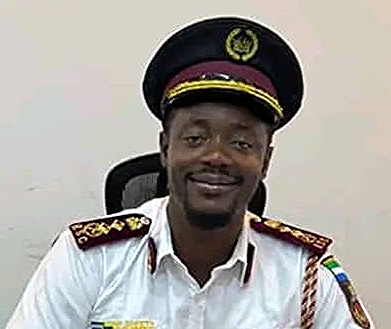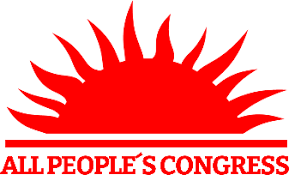By Hassan Osman Kargbo
The Sierra Leone Roads Authority (SLRA) has officially classified Dwazark Junction in Freetown as a designated right of way, paving the way for the removal of shops, stalls, and structures that obstruct ongoing road construction in the area. While authorities stress the long-term benefits of improved infrastructure, the move has stirred frustration among local business owners and residents who feel the clearance is displacing livelihoods without adequate notice or support.
SLRA states the action is part of a broader road development strategy aimed at improving transportation, easing congestion, and enhancing accessibility across the capital. According to a statement released this week, the classification of Dwazark Junction as a right of way grants legal authority to remove structures within the path of the proposed roadwork.
“This clearance is necessary to ensure seamless development of the road network,” SLRA noted. “We understand the immediate concerns of affected persons, but this project is vital to the long-term growth of Freetown.”
However, for many in Dwazark, the news came with a heavy emotional and financial toll.
“I have been selling here for over ten years. This is my only source of income,” said Mariatu Sesay, a petty trader who runs a small stall near the junction. “They just came and told us to move. No compensation, no help, nothing. How are we supposed to survive?”
Another shop owner, Ibrahim Kamara, echoed similar concerns. “We are not against development,” he said, “but how can development come by destroying people’s lives? At least they should have engaged us first or given us somewhere else to relocate.”
Several affected traders complained that the notice period was short and that enforcement began before many could make alternative arrangements. Some structures have already been demolished, while others are being dismantled by their owners to salvage building materials and goods.
Community members say while they understand the government’s need for infrastructure improvements, the approach taken by the SLRA lacks compassion.
“This is the kind of top-down development that frustrates ordinary people,” said Fatmata Jalloh, a local resident and community advocate. “They should include communities in the process. These traders are not criminals — they are just trying to make a living.”
In response to these concerns, the SLRA has called for patience, urging the community to focus on the broader picture. The agency maintains that once completed, the new road system will bring significant benefits including reduced travel times, safer roads, and greater connectivity for vehicles and pedestrians alike.
“We appeal to residents to bear with the process,” an SLRA spokesperson said. “This project is not just for today but for generations to come. Better roads mean better business opportunities, smoother transportation, and safer movement for everyone.”
Despite the reassurances, tensions remain high in Dwazark, where many affected by the clearance are still unsure of what comes next. With livelihoods disrupted and uncertainty about future support, the community continues to call for dialogue, transparency, and practical solutions that balance development with human needs.
As roadworks proceed, all eyes are now on how SLRA and government stakeholders will respond to the growing outcry — and whether future development plans will involve deeper consultation with the people most directly impacted.













